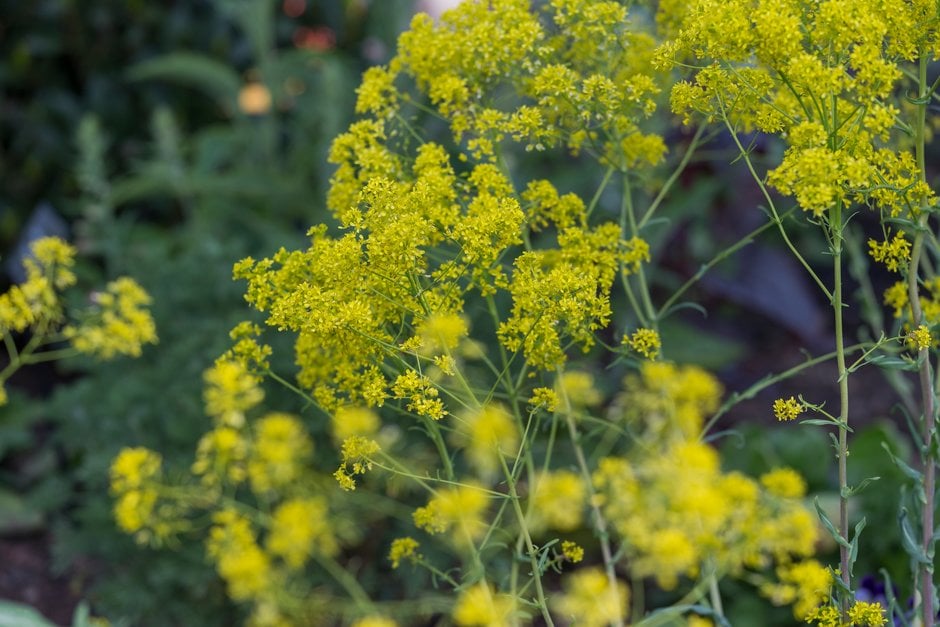Isatis tinctoria
woad
An upright biennial, or sometimes a short-lived perennial, up to 1.2m high, with basal rosettes of oblanceolate leaves, stems with arrow-shaped leaves, and heads of yellow flowers in early summer, followed by brown seedheads in late summer; the flowers are good for bees, and the famous blue dye is obtained from the leaves
Size
Ultimate height
1–1.5 metresTime to ultimate height
1–2 yearsUltimate spread
0.5–1 metresGrowing conditions
Moisture
Moist but well–drained, Well–drainedpH
Acid, Alkaline, NeutralColour & scent
| Stem | Flower | Foliage | Fruit | |
| Spring | Green | |||
|---|---|---|---|---|
| Summer | Yellow | Green | Brown | |
| Autumn | Green | Brown | ||
| Winter |
Position
- Full sun
Aspect
West–facing or East–facing or South–facing
Exposure
Exposed or Sheltered Hardiness
H7Botanical details
- Family
- Brassicaceae
- Native to GB / Ireland
- Yes
- Foliage
- Deciduous
- Habit
- Columnar upright
- Genus
Isatis can be annuals, biennials and perennials largely found on waste ground or dry, rocky areas. They have ovate to oblong shaped basal leaves and smaller, arrow-shaped, stalkless stem leaves. Loose racemes or panicles of yellow flowers are attractive to bees and these plants make a great addition to wildlife gardens.
- Name status
Correct
- Plant range
- C & S Europe
How to grow
Cultivation
Grow in well-drained, preferably neutral or alkaline soil, in full sun; it tolerates poor infertile soils
Propagation
Propagate by seed, sown in autumn in a seed bed and transplanted in spring, or sown in spring in its intended planting place
Suggested planting locations and garden types
- Prairie planting
- Cottage and informal garden
- Wildlife gardens
- Flower borders and beds
Pruning
No pruning required
Pests
Generally pest-free
Diseases
Generally disease-free
Get involved
The RHS is the UK’s gardening charity, helping people and plants to grow - nurturing a healthier, happier world, one person and one plant at a time.
